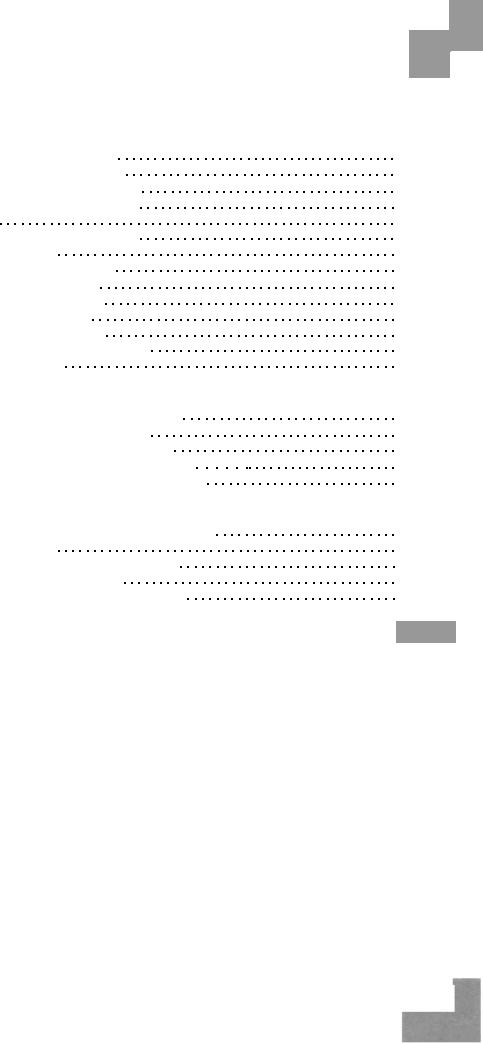
552 / 199 to 222 Verbals
.pdf
UNIт
Exercises 78
Переделайте предложения, употребляя инфинитивные обороты.
I have a lot of work that I must do. I have a lot ofwork to do.
1.There are a lot of things that you must wash
2.This is an interesting film that a child can see
3.This is an interesting subject that one can study
4.They had a lot of things that they could discuss
5.Judy learned about it last
6.There are other facts that can prove this theory
7.There is news that you must know
8.Frank told his father the pleasant news first
9.He has a friend that he can ask for advice
10.There are some papers that must be typed
11.I have some money that can be invested
12.This is the material that should be revised
13.He got to the finishing line right after the winner
14.These are the things he must repair
Переделайте предложения, употребляя конструкцию too + adjective + infinitive.
1. The weather is so bad that we won't go to the country |
|
2. The article is so difficult that he can't translate it |
|
3. The day is so hot that it is impossible to stay in town |
|
4. The dress is so expensive that it can't be worn every day |
' |
5. The mountain is so high that you won't be able to climb it |
|
Переделайте предложения, употребляя конструкцию adjective + enough + infinitive.
1.The rule was difficult. The child could hardly understand it
2.The car is expensive. I can't buy it
3.The house was large. Such a big family could live in it
4.The girl is fifteen. She's going to get married
5.Your coat isn't warm. You can hardly wear it in winter
Переведите.
1.Мненужнопочинитьчасы.
2.Ей нужно почистить пальто.
3.Он прибыл первым.
4.Она сделала работу последней.
5.Она сшила себе новое платье.
6.Ему нужно перевести эту статью. Он не знает немецкий.
7.Это был третий вопрос, который мы должны были решить.
8.Мненужнопочиститьботинки.
9.Тыподстриглась?
10.Она почистила пиджак?
11.Когда Смиты отремонтировали дом?
12.Вам уже сшили новое платье?
78.1
78-2
78.3
78.4
14 Грамматика английского языка |
209 |

UNIT 79
ИНФИНИТИВ ИЛИ ГЕРУНДИЙ?
После некоторых глаголов в английском языке может употребляться как инфинитив, так и герундий, причем значение высказываний будет разным.
to stop doing
перестать что-то делать
Не stopped reading. Он перестал читать.
to like doing (= to enjoy)
делать что-то с удовольствием I like swimming.
Я люблю плавать.
to remember doing
прошлое действие
I remember speaking to him. Помнится, я с ним разговаривал.
to regret doing
сожалеть о сделанном
I regret telling her the truth.
Мне жаль, что я сказал ей правду.
to allow doing
разрешено, позволено
Do they allow smoking here? Здесь разрешено курить?
to be busy doing
быть занятым чем-нибудь He is busy reading.
Он занят, он читает.
try doing
способ совершения действия If you can't remember a word, try writing it ten times.
Если не можете запомнить слово, попробуйте написать его десять раз.
to be (to get )used to doing
привычка к чему-либо
I'm used to living in a small flat.
Я привык жить в маленькой квартире.
to stop to do
прекратить какое-то действие для определенной цели
Не stopped to read an advertisement.
Он остановился, чтобы прочитать объявление.
to like to do (= to think it right)
делать что-то, так как это правильно I like to come in time.
Я люблю (т. к. считаю правильным) приходить вовремя.
to remember to do
настоящее или будущее действие
Remember to talk to him.
He забудь с ним поговорить.
to regret to do
сожалеть, что приходится делать
I regret to tell you that this is the truth.
Мне жаль вам это говорить, но это правда.
to allow somebody to do
разрешать кому-то делать что-то I don't allow my son to smoke.
Я не разрешаю сыну курить.
to be busy to do
быть занятым для чего-нибудь Не is too busy to read.
Он слишком занят, чтобы читать.
try to do
усилия, потраченные на действие
I couldn't remember the word no matter how hard I tried to remember it.
Я не мог запомнить слово как ни старался.
used to do
регулярное действие в прошлом I used to live in a small flat.
Раньше я жил в маленькой квартире.

Exercises
Употребите инфинитив или герундий, исполтъзуя данные глаголы.
1.Iused |
the shopping in this shop when I lived here. |
do |
|||
1. I haven't yet got used to |
in this house. |
live |
|||
3.I'mtrying |
|
to you the point. Why aren't you listening? |
explain |
||
4. Stop |
I can hear you very well. |
|
shout |
||
5. On his way to the office he often stops |
to this man or that. |
talk |
|||
6. I remember |
|
a rest there. It's really a wonderful place. |
have |
||
1. Please, remember |
them an invitation card. |
send |
|||
8. She is used to |
coffee in the morning. |
|
drink |
||
9.Itried |
Italian with him but I failed. My Italian is too bad. |
speak |
|||
10. Try |
French with him. You know French, don't you? |
speak |
|||
11. He stopped |
|
a stranger the way to the nearest bank. |
show |
||
12. While living in England I used |
this newspaper in the morning. |
read |
|||
13. I didn't like |
|
the letter as it wasn't addressed to me. |
open |
||
14. Many dentists don't allow |
gum. |
|
chew |
||
15. The doctor doesn't allow me |
|
|
drive |
||
Заполните пропуски, выбирая ненобходимый по смыслу глагол.
1. Please stop |
|
silly questions. |
|
|
meet |
|
2. He stopped |
|
the toy the child had dropped. |
pay attention |
|||
3. I remember |
|
to him. He is an interesting man. |
ask |
|||
4. Remember |
|
him at the station. |
|
|
ignore |
|
5. |
He lives in the suburbs and he is used to |
|
a train to go to |
|
||
|
work and back. |
|
|
|
|
|
6. |
When I lived in the suburbs I used |
by train to work and |
|
|||
|
back. |
|
pick |
|
up |
|
7. I tried not |
|
to what he was saying but it was impossible. |
take |
|||
8. |
- I can't stand his presence any more. - Try |
all his remarks. |
go |
|||
9. |
She regrets |
|
the child. She thinks it wasn't his fault. |
work |
||
10. |
She is busy |
|
in the garden. |
|
|
wait |
11. I'm too busy |
for them. I don't want to be late. |
tell |
||||
12. I regret |
|
you that he has fallen ill. |
|
|
|
|
13. I don't like |
|
everything to him but he expects an explanation. explain |
||||
14. The mother didn't allow the child |
so many sweets. |
|
||||
15. |
I like .. |
. when I'm tired. |
|
|
stay in bed |
|
Переведите.
1.Раньше я пила много кофе, а теперь нет.
2.Не забудь выключить свет, когда будешь уходить.
3.Я помню, что оплачивал этот счет.
4.Вчера я пытался до него дозвониться, но не смог. Попробуй сделать это вечером.
5.Я привык читать газеты по утрам.
6.Ты не пожалеешь, если отдохнешь там.
7.Лектор не разрешает пропускать занятия.
8.Учитель не разрешает детям пропускать занятия.
9.Он остановился, чтобы прочитать объявление.
10.Перестаньтешептаться.
UNIT
79
79.1
79.2
211

UNIT
80 ПРИЧАСТИЕ
Причастие (The Participle) - это неличная форма глагола, совмещающая в себе свойства глагола, прилагательного и наречия.
Формы причастия
|
|
|
|
|
|
|
Active |
|
Doing |
|
|
Having |
done |
|
|
|
|
|
|
|
Passive |
|
being |
done |
done |
having been |
done |
|
|
|
|
|
||
|
выражает |
дейст- |
выражает дейст- |
выражает дейст- |
||
|
вие, одновремен- |
вие одновремен- |
вие, предшеству- |
|||
|
ное |
с действием |
ное или предшест- |
ющее глаголу-ска- |
||
|
глагола-сказуе- |
вующее глаголу- |
зуемому |
|
||
|
мого |
|
сказуемому |
|
|
|
|
|
|
|
|||
The boy playing in the garden is my |
Мальчик, играющий в саду, сын моего |
|||||
son's friend. |
|
|
друга. |
|
|
|
The question being discussed now is |
Вопрос, который сейчас обсуждается, |
|||||
important. |
|
|
важный. |
|
|
|
He put the typed texts on the table. |
Он положил отпечатанные тексты на |
|||||
|
|
|
|
стол. |
|
|
Having taken what he wanted he left |
Взяв все, что ему было нужно, он вышел |
|||||
the room. |
|
|
из комнаты. |
|
|
|
Having been told to come later he |
Так как ему сказали прийти позже, он |
|||||
didn't know what to do. |
|
|
не знал, что делать. |
|
|
|
Отрицательная форма причастия
Not knowing the truth he felt calm.
Not having found the book he rang up his friend.
He зная правды (так как он не знал правды), он не волновался.
Не найдя книгу, он позвонил другу.
Русскому действительному причастию прошедшего времени в функции определения в английском языке соответствует придаточное определительное.
Человек, звонивший вам вчера, скоро |
The man who phoned you yesterday will |
|
будет здесь. |
soon be here. |
|
|
- |
. |
212

Exercises
Употребите причастия в форме настоящего времени действительного залога. |
8О. |
4She was sitting and watching the sunset. => She sat watching the sunset.
1.The man who is sitting at the window is waiting for you
2.As he was a rich man he could buy the car
3.As she was ill she had to stay at home
4.As she was proud of her son she often spoke about him
5.What is the name of the man who is talking to Jack?
6.As he was late he took a taxi
7.The child who was crying looked unhappy
8.At last I found the page which was missing
9.As he was interested in the subject he read a lot of books about it
Употребите причастия в форме страдателного залога. |
8О.2 |
4He took some photos of a church which was built in the 15th century. =>He took some photos ofa church built in the 15th century.
1.He took the camera which was broken and threw it away
2.He was looking at the pictures which had been drawn by the child
3.The thing which she had forgotten was again fresh in her memory
4.They are looking for some treasure which is hidden here
5.The lanterns which were lit showed them the way
6.The bird which had been shot fell down
7.He likes to wear clothes which have worn out
8.He saw a note which had been written in a hurry
9.He looked through the composition the child had written
Употребите причастия в форме прошедшего времени действительного залога. |
8О.З |
4As I hadn't phoned him back I had to apologise. => Not havingphoned him back I had to apologize.
1.I left the luggage at the airport and went to the restaurant
2.As he hadn't found the necessary papers he felt angry
3.As he hadn't read the book he couldn't discuss it
4.As they hadn't taken a decision they turned to him for help
5.She made dinner and decided to have a rest
6.As he hadn't bought tickets he couldn't join them
7.As he had broken his car he had to go by bus
8.He finished the article and went to bed
9.As he had given up smoking he felt better
Употребите причастия в форме страдателного залога.
4 Не was being followed and felt uneasy. О Being followed he felt uneasy. 1. As he hadn't been introduced to the other guests he felt
astranger
2.As she was being looked at she felt confused
3.He had been taught good manners and that was why he was admired by everybody
4.The clothes which are being sold here are expensive
5.As the cup was broken it was of no use
6.He hadn't been asked to come in and felt hurt
7.As the flowers had been kept without water for a long time they faded
8.As the house was being reconstructed it was empty
9.As he had not been told the truth he didn't know how to act.

UNIT 81
УПОТРЕБЛЕНИЕ ПРИЧАСТИЯ И ИНФИНИТИВА В КОНСТРУКЦИИ «СЛОЖНОЕ ДОПОЛНЕНИЕ» (COMPLEX OBJECT)
Конструкция сложное дополнение состоит из двух частей:
существительное в общем падеже или |
инфинитив смыслового |
|
местоимение в объектном падеже, |
глагола или причастие |
|
обозначающее лицо или предмет |
||
|
После этих глаголов инфинитив употребляется с частицей to: to want, I'd tike,
to expect, to know, to like, to hate,...
На русский язык Complex Object, как правило, переводится дополнительным придаточным предложением с союзами что, чтобы, как.
I want you to close the window. |
Я хочу, чтобы ты закрыл окно. |
Не expects us not to be late. |
Он предполагает (ожидает), что мы не |
|
опоздаем. |
После глаголов to make, to let употребляется инфинитив без частицы to. Make him go there. Let me pass.
После глаголов to hear, to see, to notice, to feel, to watch глагол употребляется в форме:
инфинитива без частицы to , если следует подчеркнуть факт восприятия действия вплоть до его завершения.
I heard him come in |
Я слышал, как он вошел. |
He noticed Roger pick up something |
Я заметил, как Роджер поднял что-то с |
off the floor. |
пола. |
I saw him buy a newspaper. |
Я видел, как он купил газету. |
причастия (doing), которое подчеркивает длительность действия. |
|
I heard him coming in. |
Я слышал, как он входил. |
I noticed Roger picking up something |
Я заметил, как Роджер поднимал что-то |
off the floor. |
с пола. |
I watched the children playing. |
Я наблюдал, как дети играют. |
I saw him buying a newspaper. |
Я видел, как он покупал газету. |
Если глаголы to see, to hear, to notice, to feel употреблены не в своем прямом значении, после них употребляется дополнительное придаточное предложение.
I hear (that) they have just moved to |
Я знаю, что они только что переехали |
a new flat. |
на новую квартиру. |
I saw (that) he didn't understand anything. |
Я видел, что он ничего не понимает. |
I felt that he was wrong. |
Я чувствовал, что он не прав. |
Придаточное предложение также употребляется вместо Complex Object в предложениях типа Ты слышал, как он поет? Ты видел, как она рисует?
Did you hear how he sings? |
Ты слышал, как она поет? |
Did you see how she draws? |
Ты видел, как она рисует? |

|
|
|
|
|
Exercises |
Постройте Complex Object при помощи глаголов из таблицы. |
|
|
|||
Не is very clever. We know him to study a lot. |
|
|
|
||
1. Why have you closed the window? I want |
|
it. to behave |
|||
2. Why didn't Steve buy anything on his way home? I'd like |
to |
|
open |
||
|
|
|
|
to smile |
|
3. When are they to come? We expect |
|
on |
|
to do the shopping |
|
Tuesday. |
to |
|
|
|
arrive |
4. She is very pretty. I like |
|
to |
|
|
study |
5. Nick is sometimes so impolite. I hate |
|
|
|
|
|
like that. |
|
|
|
|
|
Употребите Complex Object после глаголов make и let. |
|
|
|
||
4 Why aren't the children sleeping? Make them go to bed. |
|
|
|
||
1. Why is he waiting in the street? Let |
|
go |
to |
|
bed |
2. David is lying again. Make |
|
|
|
to tell the truth |
|
3. I haven't heard about it yet. Let |
|
the |
to translate |
||
article. |
to |
|
|
|
learn |
4. The child doesn't know the rules. Make |
to |
come |
|
in |
|
to |
come |
|
|
|
in |
them. |
|
|
|
|
|
5. Alice knows English very well. Let |
|
|
the |
|
|
text. |
|
|
|
|
|
Постройте Complex Object при помощи глаголов из таблицы. |
|
|
|||
4 Why did you punish the child? I heard him crying. |
|
|
|
||
1. Steve tries to keep fit. I saw |
|
in the park yesterday. |
|
|
|
2. I like children and I like to watch |
|
to |
|
|
cry |
3. She was cold. I felt |
|
|
|
to play |
|
4. They have made it up. I heard |
|
in the |
to shiver |
||
next room. |
|
|
|
|
to jog |
5. I'm sure Mrs. Smith is not at home. I saw |
|
the to |
laugh |
||
house. |
|
|
|
I |
|
Употребите Complex Object после глаголов see, hear, notice, watch. |
|
|
|||
4 Ask Mark to lend you the book. I saw him buy it. |
|
|
to fall down |
||
1. He must be at home. I saw |
|
the house. |
to |
|
throw |
2. I know it from Jeremy himself. I heard |
|
it. to take |
|||
3. I think Pamela feels bad. I noticed |
|
a pill. |
|
|
|
4. The child is cruel. I watched |
|
a stone at a dog. |
|
|
|
5. Carol must have broken a cup again. I heard |
in the |
to |
buy |
||
kitchen. |
|
|
|
|
to say |
Переведите на английский.
1.Я слышал, как он играл на пианино.
2.Ты когда-нибудь слышал, как он играет на скрипке?
3.Я слышал, что Джеймс сдал последний экзамен.
4.Ты когда-нибудь видел, как она держит ручку?
5.Я видела, как она что-то пишет.
6.Мать видела, что с сыном что-то не так.
7.Я видел, как он взял что-то со стола.
8.Мы слышали, как он нам что-то крикнул.
UNIT
81

UNIT |
ПОВТОРЕНИЕ (уроки 75-81) |
|
82 |
||
|
||
82.1 |
Переделайте предложения, как показано в примере. |
|
|
+ I won't go on holiday this year. I can't afford it. => / can't afford to go on holiday this year. |
4- The child was sleeping. The mother watched him. => The mother watched the child sleeping.
1
1.We'll go to the theatre on Friday. I'm looking forward to it
1.Paul bought some flowers. Jane saw it
3.I can wait for you. I don't mind
4.I turned off the light when I was leaving. I remember it
5.I can earn my own living. I'm capable of it
6.He was crossing the street at the red light. I saw it
7.I didn't remind him of the meeting. I forgot
8.I always have dinners in a restaurant. I enjoy it
9.Don't make him angry. Try to avoid it
10.The child was reading well. Did you hear?
2
1.You must break eggs to make an omelette. You can't make it without it.
2.It's wonderful to stay at an expensive hotel. Just imagine it
3.He opened the door and came into the room. I heard it
4.It's a nice place to have a rest. I know it
5.You must see the play. It's worth that
6.I won't go to the disco. I don't feel like that
7.Even if he doesn't want to answer the question make him
8.Don't advise him anything. It's no use
9.I overheard what you said. I just couldn't help it
10.She picked up something and put it into her pocket. I noticed it
11.He will apply for the job. I advised him
12.You will meet the president. I've arranged it
13.He hasn't recovered after the illness. He doesn't seem to
14.Did you lock the door? Do you remember?
15.The bell was ringing. I heard it
82.2Исправьте ошибки, где это необходимо.
1. Would you like come with us? |
П |
П |
|
2. Remember leaving him a note. |
П |
П |
|
3. I want the porter taking my luggage to the carriage. |
П |
П |
|
4. They don't let us park cars here. |
П |
П |
|
5. |
They don't allow us park cars here. |
П |
П |
6. |
They don't allow talking loudly here. |
D |
П |
7. |
The manager is too busy today receiving anybody. |
П |
П |
8. The inspector asked me show my ticket but I failed do it. |
П |
П |
|
9. |
The inspector made me paying the fine but I refused paying. |
П |
П |
10. I'm used to work with the radio on. |
П |
П |
|
1. The father kept buying the boy toy guns. |
П |
П |
|
2. Do you mind to keep silence for a moment? |
П |
П |
|
3. I'd rather to go by train. |
П |
П |
|
4. James expected the director to see him at once. |
П |
П |
|
5. I heard waves to beat against the shore. |
Q |
П |
|
6. Do you feel like to walk? - I'd rather to go by bus. |
П |
П |
|
7. When I was younger I used to going on holiday three times a year. |
П |
П |
|
216

|
ПОВТОРЕНИЕ(уроки75-81) |
UNIT |
|
|||
|
82 |
|
||||
|
|
|
|
|
|
|
|
|
|
a |
|
|
|
8. |
1 hate this district. I'm afraid of been robbed. |
П |
|
|
||
9. If he needs it so much let him to have it. |
a |
a |
|
|
||
10. I noticed him walking towards me and stopped to shake hands. |
a |
a |
|
|
||
|
|
|
|
|
||
1. After spend a week in the cottage she began to enjoy to live in the country. |
a |
a |
|
|
|
|
2. |
It's no use to argue with him. He is incapable to see anyone else's point of view. a |
a |
|
|
||
3. |
Avoid staying in the sun. It's too hot. |
a |
a |
|
|
|
4. |
His words are worth to remember. |
a |
a |
|
|
|
5. |
Why did you give up to work for the company? |
a |
a |
|
|
|
6. |
He agreed come without thinking. |
a |
a |
|
|
|
7. I know I promised calling on him but somehow I failed do it. |
a |
n |
|
|
||
8. On arrive at the station I managed finding a porter at once. |
a |
a |
|
|
||
9. |
The coat needs to clean. You'd better to take it to the cleaner's. |
a |
a |
|
|
|
10. |
I couldn't help pay attention to his words. |
a |
a |
|
|
|
Переведите. |
|
|
82.3 |
||
1 |
||
|
1.Я хочу, чтобы вы подождали меня после занятий.
2.Я не ожидал, что он забудет о твоем дне рождения.
3.Он отказался выкурить сигарету, так как бросил курить.
4.Няня сказала детям поиграть в саду, и сидела, наблюдая за тем, как они играют.
'5. Я видел, как всходило солнце.
6.Перестань кричать. Я запрещаю тебе кричать.
7.Я слышал, как они говорили по-английски.
8.Я слышал, что вы говорите по-английски.
9.Я не мог не попросить его остаться.
10.Учитель заставил мальчика сделать упражнение еще раз.
1.Он почувствовал, как врач дотронулся до больной ноги.
2.Я наблюдал за тем, как Майк пытался научить ребенка кататься на коньках.
3.Она хочет, чтобы гости пришли вовремя.
4.Я слышал, как проехала машина.
5.Я видел, что ему плохо.
6.Я не разрешаю здесь курить. Я устал напоминать тебе об этом.
7.Я видел, как ты на него посмотрела.
8.Он заставил меня встать рано.
9.Наконец-то она перестала говорить мне, что мне делать.
10.Я не разрешаю ребенку гулять одному.
3
1.Кажется, он хороший специалист. Советую тебе его нанять.
2.Я привык жить один.
3.Все знали, что он прекрасный врач.
4.Машину надо помыть. Не забудь это сделать.
5.Я надеюсь (ожидаю), что он поймет наши проблемы.
6.Она не может позволить себе оставаться здесь долго.
7.Дети с нетерпением ждали поездки к морю.
8.Я заметила, как Джек ударил Билла.
9.Он любит смеяться над другими.
10.Мне не понравилось, как Джорж разговаривал с клиентом.
11.Есть разные способы заставить ребенка быть вежливым.
12.Мы видели, как она вышла из комнаты.
13.Перестань волноваться. Я устроил тебе встречу с хорошим врачом.
14.Я слышал, как он задавал этот вопрос.
15.Я настаиваю на том, чтобы вы отказались от этой идеи.
217

UNIT 83
СЛОВА «ЕЩЕ» и «УЖЕ» (STILL, ALREADY, YET]
Still переводится на русский язык как еще, все еще, пока еще.
В утвердительных предложениях still указывает на то, что действие продолжается.
Не is still here. |
Он все еще здесь. |
Не is still reading. |
Он все еще читает. |
Вотрицательных предложениях still переводится на русский как все еще не..
иделает предложение более эмоциональным.
Не still hasn't taken a decision. |
Он все еще не принял решение. |
Не still doesn't know what to do. |
Он все еще не знает, что делать. |
Yet совпадает по значению со still, но употребляется в отрицательных
предложениях и переводится на русский язык как пока еще не...
Не hasn't come yet. |
Он пока еще не пришел. |
Не isn't here yet. |
Его пока еще нет. |
Не is still absent. |
Не hasn't come yet. |
Он все еще отсутствует. |
Он еще не пришел. |
В вопросительных предложениях yet переводится на русский как уже.
Is he here yet? |
Он уже здесь? |
Has he come yet? |
Он уже пришел? |
Already употребляется в утвердительных предложениях и переводится на русский как уже.
Не already knows about it. |
Он уже знает об этом. |
Не is already hungry. |
Он уже голоден. |
Не has already come. |
Он уже пришел. |
Иногда already употребляется в вопросительных предложениях и придает высказыванию оттенок удивления.
Has he come already! Он уже пришел? (Так скоро?)
218
